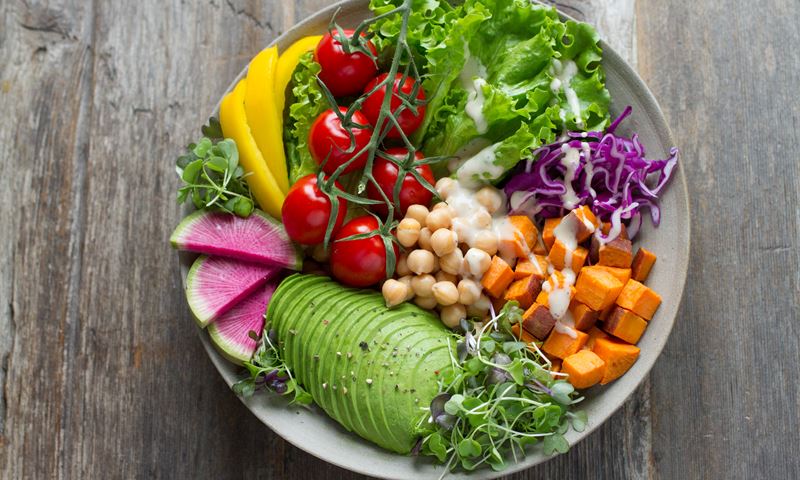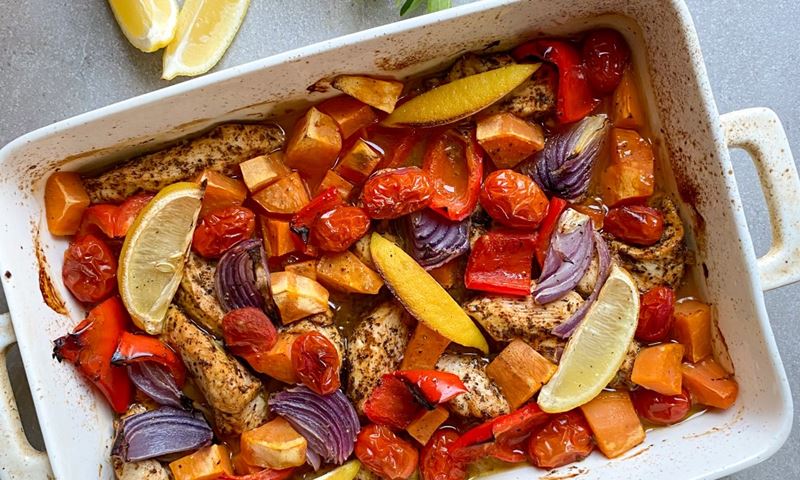Published 12 Sep 2022
The immune system is our body’s way of protecting us against infectious disease. In our latest Healthier Together podcast, we speak with Mel Bald about how we can support our body through what we eat to have the best defence against germs.
Listen to the 15 minute podcast here.
The podcast discusses what exactly our immune system is, how we can support it through eating fresh, vitamin-filled foods and what we can avoid.
What is an immune system?
Our immune system is our body's way of protecting and fighting against infectious diseases. Made up of special organs (like the spleen), cells (like white bloods cells) and chemicals, our immune system works together to attack germs and keep us healthy.
Why is what we eat important to our immune system and what foods best support it
We know that eating a big range of vitamins, minerals and macronutrients can help your cells fight infection. Our white blood cells play a huge part in our immune system’s defence.
The best foods to focus on are whole, unprocessed foods – so vegetables, fruit (fresh, frozen or tinned), meat, fish, chicken, eggs, legumes, nuts and seeds.
What foods make our immune system work harder?
As soon as you add extra fat, sugars or additives into your diet, they can change how food affects us. We know that sugar has been shown to slow the action of our white blood cells.
These cells are like the soldiers of our immune system that protect us from infectious disease and invaders and we want these guys to be working well for you. Sugar has been shown to make them less reactive – therefore, less effective at doing their job. Sugar can also negatively affect the bacteria in the gut, so it's important to maintain a balanced sugar intake.
What is the link between our gut and our immunity?
The mucous layer that coats the inside of our nose and digestive system (or gut) is a barrier from virus and bacteria. This is known as our first line of defense.
Around 70 per cent of our immune defenses lie along the lining of our gut, so we need to keep it in good condition. The gut bacteria we have living there – both good and bad, influence how immune system reacts.
The gut is also responsible for digesting food and breaking down nutrients – if it’s not working properly there may be reduced absorption of nutrients. The foods we eat help to feed our gut bacteria. Some foods will feed the ‘good guys’ and some will feed the bad guys.
To support the ‘good guys’, we need to have a diet mainly of whole unprocessed foods such as fruit, vegetables, wholegrains, and protein sources.
What are prebiotics?
Prebiotics are a type of fibre our body can’t digest, instead they are important to feed our good bacteria. Foods high in prebiotics include:
- Garlic
- Onions
- Leeks
- Asparagus
- Oats
- Apples
- Cocoa
There’s a compound in garlic which can boost the disease-fighting response of some types of white blood cells in the body when they encounter viruses.
For this compound to be active, garlic should be crushed or sliced prior to eating or cooking.
If you have it raw, it will have higher amounts of this compound. So you could use it in something like homemade basil pesto, dips or dressings. Grilling and roasting will still retain most of the compound, provided the garlic is sliced or crushed beforehand.
What are probiotics?
Probiotic foods (or supplements) contain live microorganisms which are helpful to our body. They can be found in foods like:
- Some yoghurts which list live cultures
- Kimchi
- Keir which is a yoghurt style drink
- Kombucha
- Miso
- Traditional sourdough bread
What are the 4 top things we can do to help our immune system?
We can help our bodies to help us prevent catching colds by:
- Getting enough sleep
- Keeping hydrated
- Getting regular exercise
- And managing our stress
Sleep is the way our body repairs and ensures all our cells are functioning well so it is important to make sure you are getting regular good sleep. Also if you do get sick, make sure you take time to rest as it will speed up recovery time.
Drinking plenty of water helps our immune system to operate at its best capacity. Drinking warm herbal teas can be a nice way to get some extra fluids in over winter.
In terms of exercise, moderate regular exercise has been shown to reduce your susceptibility to infection due to helping immune cells to work more effectively.
Lastly, stress raises your cortisol levels (stress hormone) which if this stays elevated for too long, can weaken the immune system, so having ways to deal with the stress to reduce it are important.
For more on supporting your immune system with Mel Bald, listen to the podcast.



